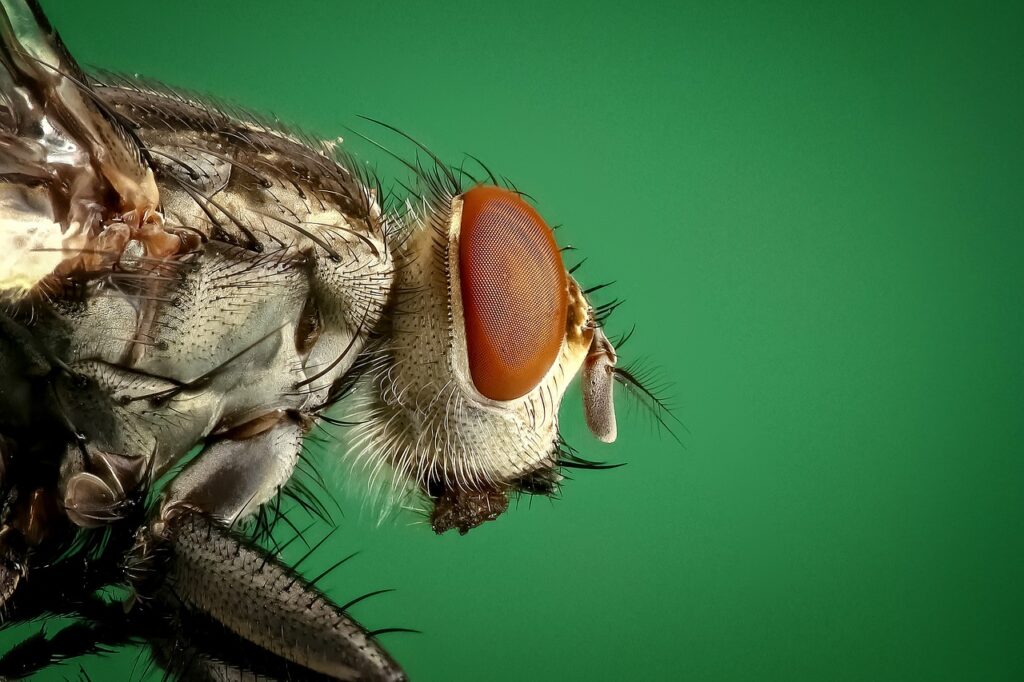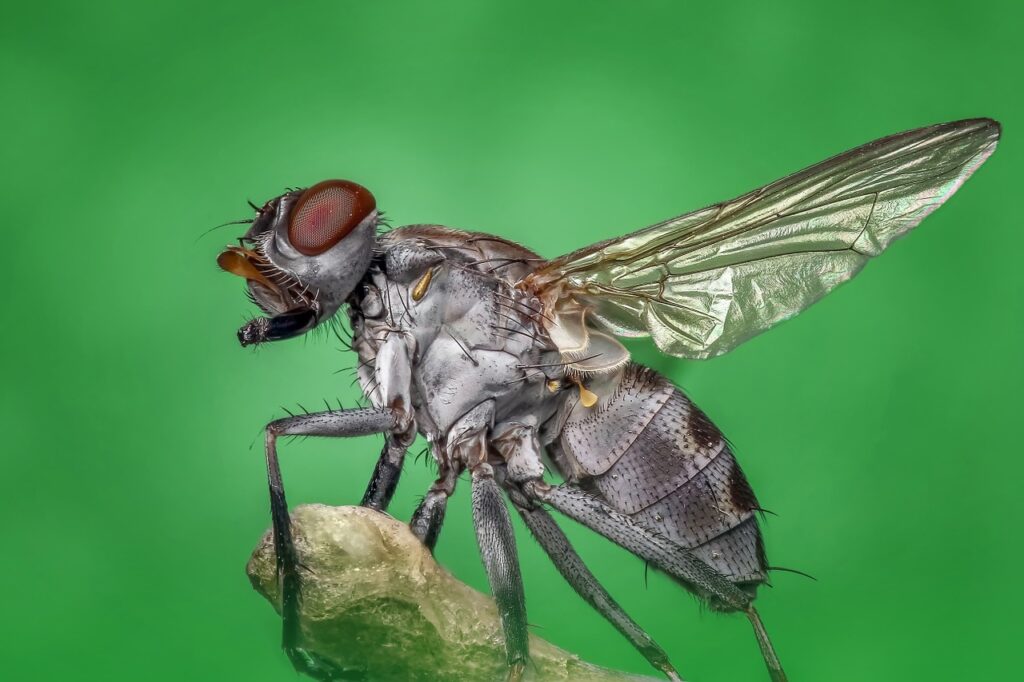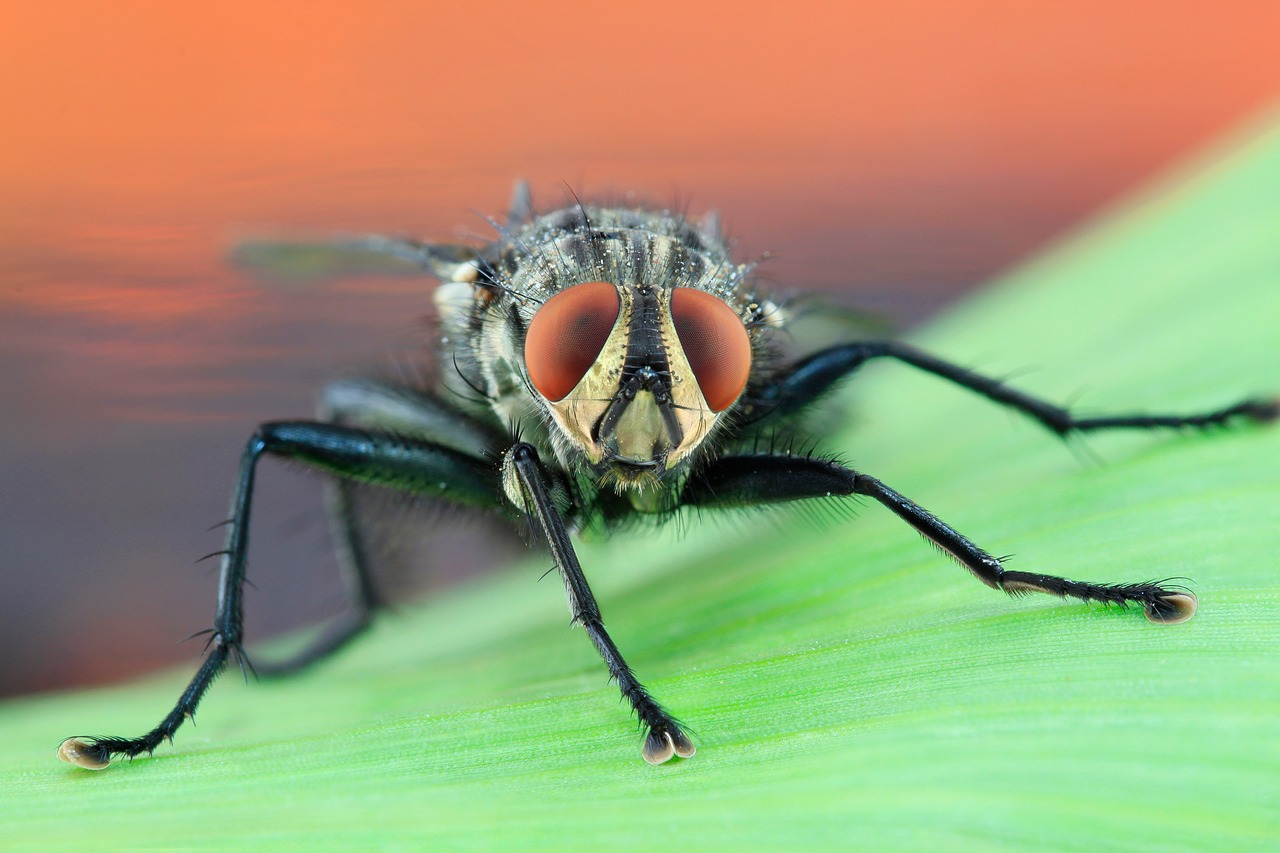When you think about pests, houseflies are probably not the first ones that spring to mind. You think of cockroaches and rats, but you should never underestimate houseflies as pests, because they spread diseases too. Here is everything you need to know about houseflies and diseases.
What are the diseases you can get from houseflies?
There are a lot of different types of flies, but the non-biting varieties are the ones usually closest to human habitation. One non-biting variety, known as Musca domestica, is the housefly and is the most widespread fly across the United States. Among all flies, Musca domestica, poses the greatest threat to spread diseases because of its proximity to humans.
Here are the most prominent diseases you can get from houseflies:
- Cholera
- E. coli infection
- Diarrhea
- Dysentery
- Salmonellosis
- Shigellosis
- Typhoid fever
There are a lot of reasons why houseflies spread these diseases. These pests generally breed and stay around dirty places, such as animal feces, dumpsites, sewage systems, and trash bins. They carry all the bacteria they come in contact with and spread them around.
How do houseflies spread these diseases?
Houseflies are great spreaders of diseases because they like to stay in dirty places. They can also fly at great distances. They are also small enough to be negligible to the human eye. It also doesn’t help that they live in close proximity to humans. In fact, according to a study, humans who live near animal production sites like farms are more likely to get diseases from houseflies. This is because houseflies can breed and stay on animal feces.
But how do houseflies spread these diseases, exactly?
They contaminate with their bodies
Houseflies can carry millions of bacteria on their bodies – thanks to the places they stay in. These bacteria usually accumulate on the houseflies’ hairs or legs. When the houseflies contact something with their bodies, they pass these bacteria.
Houseflies are fast and small. So, it may be hard to know which of your foods or house items have been contaminated by the pests. The best thing to do is to get rid of the pests as soon as you can.
They spit on your food
Houseflies don’t have mouths and teeth. They feed through their stingers. So, these pests can’t chew. They can only suck in food. They spit enzymes on your food so they can dissolve a part of it. Then they will suck on the dissolved parts.
The problem is that houseflies have bacteria in their esophagus. When they spit enzymes, they transfer these bacteria to your food. If you consume the contaminated food, you get the bacteria in it.
They urinate or defecate around the home
If you see black spots or stains around your home, be wary. They may be the urine and fecal matter of houseflies. Housefly urine and feces can spread diseases too. The bacteria inside a housefly’s body is transferred onto the urine and feces and if you come into contact with the contaminated urine and feces, you will get the bacteria in them.
In short, houseflies spread diseases in 3 general ways – they spread bacteria on your belongings, spit bacteria-infested enzymes on your food, and leave bacteria-infested urine and feces around your home.

How do you keep yourself safe from housefly diseases?
The best way to keep yourself safe from housefly diseases is to get rid of the pests in your home for good. But what if you are currently suffering from a housefly infestation or dealing with a few hitchhiking houseflies?
Here are things you can do.
Store your food properly
Pests find your home attractive because of one thing – the availability of food and water. Make your home less attractive to pests such as houseflies by storing everything that can give them sustenance. Put your food in containers and refrigerators. Avoid leaving areas damp.
Keep your home clean (especially the kitchen)
Pests are not just looking for food and water. They are also looking for shelter. Your home is the perfect shelter because it also has food and water in it. Keep your home clean of food crumbs and water spills. Keep everything tidy because houseflies are attracted to filth.
Wash food before consuming them
Wash your food before consuming them and wipe them if necessary. This is important for raw foods such as ingredients for your meals, fruits, and vegetables. This is even more important if these raw foods are out in the open and not stored in a container where they can’t be touched by houseflies.
Clean utensils before and after use
Utensils for food preparation such as cutting boards, knives, pans, peelers, and scissors should be washed and wiped before and after you use them. You should do the same thing for utensils for eating such as bowls, drinking glasses, forks, plates, and spoons.
Clear out your trash bins regularly
Your trash bins are a source of food and water too. Use trash bins with lids on top. These lids will prevent pests from smelling and getting into the food and water waste in your trash bins. Also, regularly clear out your trash bins. Those lids will have no use if your trash bins are overflowing. As much as possible, throw food and water wastes in the trash bins outside your home. If they do attract pests, at least you have your doors, walls, and windows to protect you from an infestation.
Maintain your home’s exterior
Houseflies can breed at the outside of your home, such as in your garden, lawn, or yard. Make sure to keep these areas clean, especially if you have pets that urinate and defecate in the area.

Don’t underestimate houseflies as pests
We almost always just neglect houseflies because they are just so common. And other pests such as cockroaches and rats seem more disgusting. But don’t underestimate houseflies as pests. They spread a lot of diseases. The fact that houseflies are very common can be a big disadvantage for you, as they have more and more opportunities to hurt you and your family.

